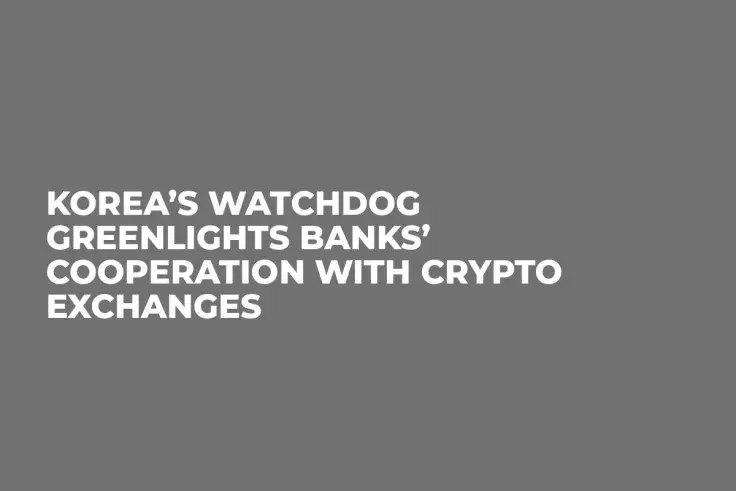
The commissioner of South Korea’s regulator FSC Choi Jong-Ku has confirmed that there are no legal barriers for banks to supply home crypto exchanges with virtual accounts.
Choi pointed out that the main condition for this collaboration to keep going is that exchanges must be geared with KYC and AML systems — only following this rule will trading companies be allowed to receive services from Korea’s banking institutions.
Specifically for exchanges, South Korean banks offer a special service dubbed ‘virtual accounts.’ This enables investors and traders to make instant deposits and withdrawals of the Korean won, which ensures they can keep their funds in won on trading platforms securely.
Crypto investors show optimism
At the start of the year, South Korean authorities urged banks to stop providing services to crypto exchanges so as to prevent them from laundering money through electronic coins.
Only one large commercial bank, Nonghyup, after working with crypto platforms for more than a year, continued to do so despite the regulator’s warning. But even this bank was made to break its cooperation with Bithumb and other large crypto traders.
Now that the head of the FSC Choi has made the government’s position on this issue clear and encourages banks to resume their collaboration with crypto exchanges, the local trading platforms seem to get a momentum for future work with no barriers from the authorities.
The newly announced position of the FSC on the matter has brought up optimism of South Korea Blockchain Association and all crypto exchanges of all scales that it represents. The legal hindrances for crypto trading in the country have now been lifted, which should stimulate the whole process. This seems good news since South Korea is one of the top major global crypto markets.
Exchanges improving their security systems
In order to give the situation a more stable base, the Korea Blockchain Association have made local crypto exchanges start working on introducing measures of insurance in order to protect their customers’ money.
However, summer reports show that large exchanges, such as Upbit, Bithumb, and others, were approved by the government to continue their operations since these platforms had implemented the necessary measures of security and local management systems.


 Arman Shirinyan
Arman Shirinyan Dan Burgin
Dan Burgin Alex Dovbnya
Alex Dovbnya Denys Serhiichuk
Denys Serhiichuk